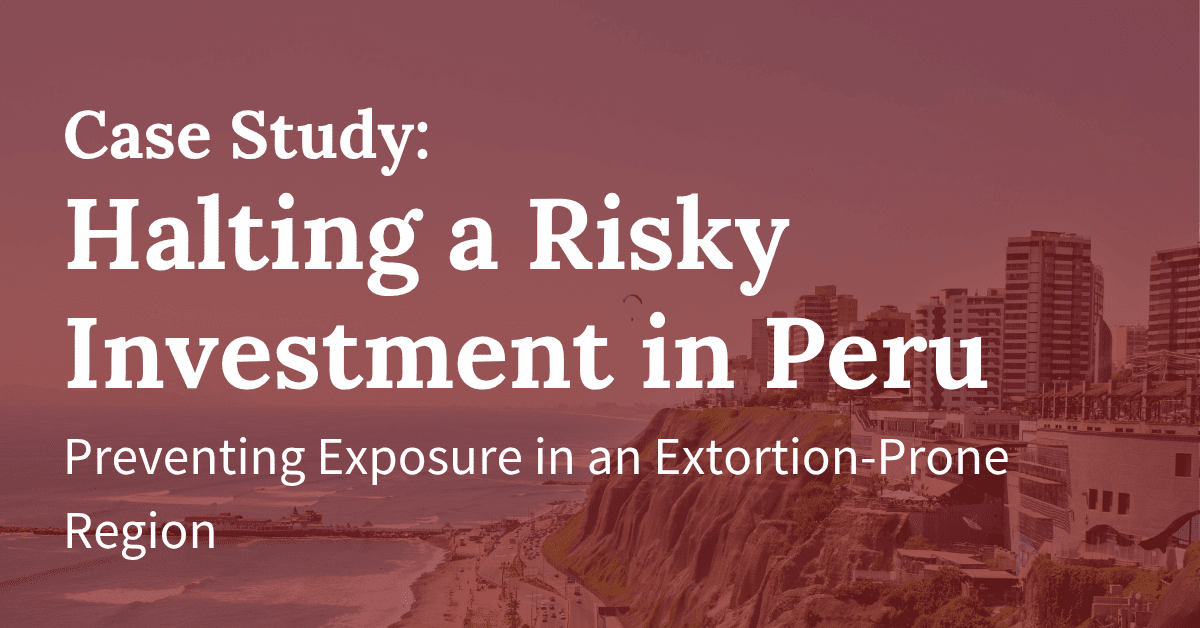Pholus conducted a layered due diligence review focused not on hypothetical or academic risks, but real-world operational feasibility. Our approach combined on-the-ground intelligence with open-source data analysis and stakeholder reputation mapping.
We began by mapping the specific sub-regions where operations would take place, using historical data on transit strikes, protest actions, theft, vandalism, and intimidation affecting construction crews and logistics firms over the last 18 months. This wasn't just about crime. It was about contested territory where economic projects frequently become leverage points for political actors, informal syndicates, or community demands that can halt operations overnight.
Next, we conducted a reputation scan on the client's proposed local partners and contractors. While none had criminal records, multiple patterns emerged: previous affiliations with firms that had withdrawn from nearby projects under unclear circumstances, known ties to local officials with documented favoritism and fee-for-access behavior, and unusual labor hiring patterns involving short-term, undocumented workers vulnerable to coercion. This suggested that even if the project itself was clean, the ecosystem was not and would expose the client to elevated risk from day one.
Drawing from public records and anonymized testimony, we identified several recent cases of local extortion schemes targeting mid-tier construction and logistics workers in the area. These schemes included demands for "protection payments" made directly to subcontractors, threats to family members of field staff to extract operational delays or sabotage, and manipulation of transit blockades to extract informal concessions from project managers. In each case, the result was the same: increased security costs, reputational damage, and near-immediate exit by foreign partners.
We consolidated our findings into a concise but high-confidence briefing with a clear recommendation: do not proceed. We emphasized that while some elements could be mitigated with careful planning and additional budget, the fundamental operating environment remained unstable. The extortion risk was not just financial—it was moral, reputational, and legal. We advised the client to decline the investment opportunity, avoid public reasoning that might trigger local backlash or retaliation, and reframe their withdrawal as a result of broader portfolio reprioritization rather than a vote of no confidence in local partners.

